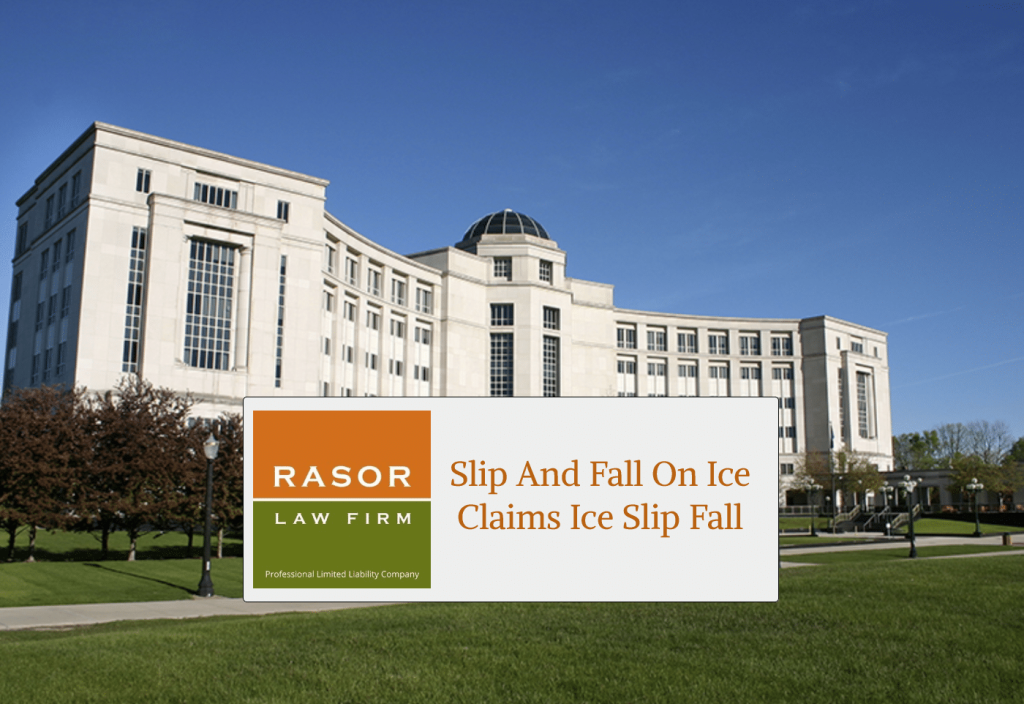Slip and fall accidents on ice are more than seasonal nuisances. They can cause devastating physical injuries, emotional trauma, and unexpected legal complications. In the world of workplace conflict, these incidents sometimes shine a light on broader underlying issues, including discrimination and racially charged hostility. When employees are treated unfairly based on their race within a work environment, it creates grounds for Hostile Work Race Claims, a serious legal matter that can severely impact the lives of those involved. These claims go beyond discomfort on the job — they reflect a systemic problem that many face in silence. By understanding what rights you have and what steps you can take, especially after an ice-related accident that may tie into broader workplace hostility, you can protect yourself, seek justice, and ensure safe, lawful conditions for your future. In this article, we’ll explore how Hostile Work Race Claims relate to slip and fall incidents, what they mean legally, and how to properly address them in Michigan’s legal system.
What are Hostile Work Race Claims in the Context of Workplace Incidents
Hostile Work Race Claims occur when an employee is subjected to racial harassment or discrimination that creates an abusive work environment. These are not isolated slights or minor disagreements; rather, they involve behavior that’s frequent, severe, or pervasive enough to significantly interfere with an employee’s ability to perform their job duties. This may include racial slurs, offensive jokes, exclusion from key work activities, or retaliation for reporting concerns.
Consider a situation where an African-American warehouse worker repeatedly reports icy entryways that remain untreated — leading to a serious slip and fall injury. If coworkers of other races are accommodated properly but their concerns are ignored, this could indicate a discriminatory pattern. Similarly, suppose a Hispanic employee reports verbal abuse from coworkers regarding their accent and is later denied time off for medical treatment after slipping on an icy loading dock. In both examples, race plays an integral role in how each situation is handled, potentially giving rise to a valid legal claim under federal and state employment laws.
Why Addressing Hostile Work Race Claims Really Matters
Filing a Hostile Work Race Claim isn’t just about personal vindication. It can have large-scale implications for workplace equality and employee well-being across an organization. Racial hostility in the workplace undermines morale, fosters unsafe environments, and often intersects with other risks, including neglect of safety maintenance — such as ignoring icy walkways that could lead to injury. Recognizing and pursuing these claims helps enforce laws meant to protect all workers equally, and ensure accountability up the corporate chain.
Beyond the personal implications, these claims often highlight systematic issues within a company’s culture. Left unchecked, hostile environments fueled by racial discrimination can lead to high turnover, decreased productivity, and even public scandals. Legal actions serve as necessary catalysts for promoting change and fairness inside a workplace.
- A retail employee repeatedly reports that icy sidewalks are never cleared near her store entrance, but her reports are ignored, unlike similar concerns by white colleagues. Result: She slips, fractures her wrist, and files a claim that opens up broader concerns of racial bias.
- A Black delivery driver faces daily racial jokes from coworkers and then is asked to deliver to icy, high-risk zones without adequate safety gear. Result: He feels targeted and disregarded, files a complaint that includes both safety neglect and racial hostility.
- A Latino warehouse worker is injured after falling from an icy loading dock. He had warned management, but they delayed action. White employees received earlier accommodations in previous cases. Result: The disparity points to race-based negligence, supporting a hostile work race claim.
Steps Involved in Handling a Hostile Work Race Claim in Michigan
- Step 1: Document the incident and any supporting details. Keep copies of emails, images of unsafe conditions, and witness statements when possible.
- Step 2: Report the issue internally to HR or a supervisor, making it clear that the concern includes race-based hostility or discriminatory practices.
- Step 3: File a formal complaint with the Equal Employment Opportunity Commission (EEOC) or Michigan Department of Civil Rights. Seek legal counsel to guide the claim properly through each phase of the case.
Key Advice for Handling Hostile Work Race Claims Successfully
Top Questions People Ask About Hostile Work Race Claims in Michigan
How Rasor Law Firm Helps with Employment Discrimination Cases
At Rasor Law Firm, we recognize that facing discrimination and hostile treatment in the workplace can feel isolating and emotionally exhausting. Our team is committed to standing beside you throughout every stage of your legal journey. We help clients build strong, well-documented claims while offering compassionate guidance. With decades of experience in Michigan employment law, our attorneys are skilled in proving discriminatory patterns, negotiating with employers, and representing clients in court when necessary. Most importantly, we understand the stakes. Your dignity, your career, and your recovery matter. Rasor Law Firm offers personalized representation and fierce advocacy, ensuring your voice is heard and your rights are fully protected. Let us give you peace of mind and results you can trust.


